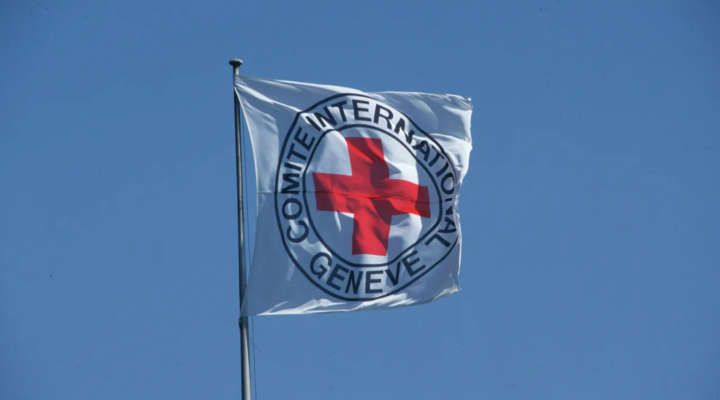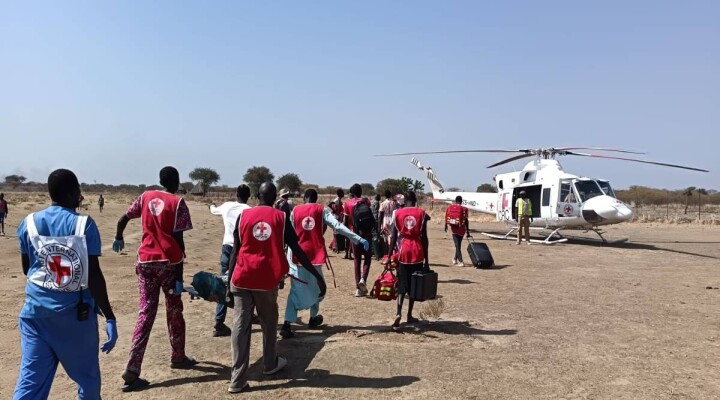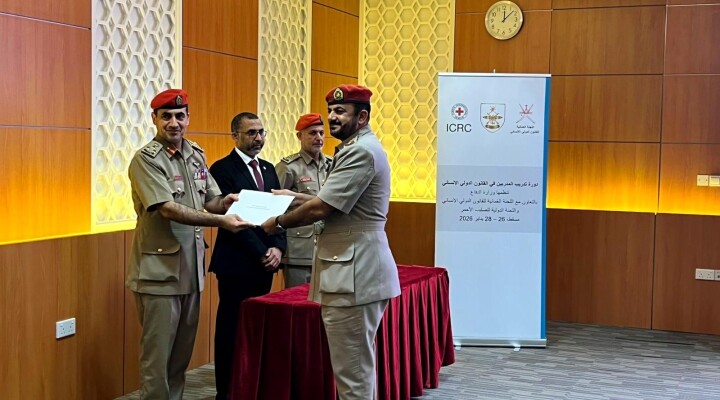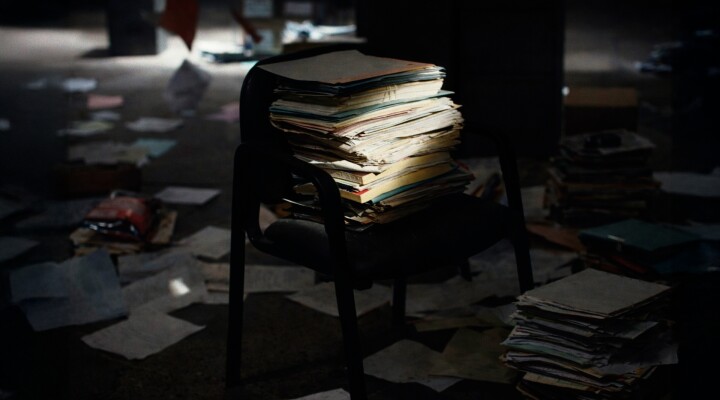Gaza Farmers Use Green Technology To Improve Livelihoods
Since 2007, Gaza economy has been suffering the effects of severe restrictions on movement of people and goods. In 2018, unemployment reached 52%, according the Palestinian Bureau of Statistics, the highest since 2014 conflict.
While profits declined, the ongoing water and energy crises have considerably increased the costs for local farmers, pushing them to resort to excessive use of chemicals to boost production. These practices, in their turn, contribute to the pollution of water and soil. Farmers in the border areas have been disproportionally affected by recurring conflicts and the fragile security situation in the area.
In order to support these vulnerable communities and reduce the environmental damage, the International Committee of the Red Cross has started implementing new projects based on environmentally friendly technology. Since December 2018, farmers in the border areas of Gaza have received ten biogas units that transform household waste into cooking gas and organic fertilizer. This technology enabled them reduce energy costs and the usage of chemicals.
For further information, please contact:
Alyona Synenko, ICRC Jerusalem, Tel: + 972 526 019 150 Email: asynenko@icrc.org
Suhair Zakkout, ICRC Gaza, Tel: + 972 599 255 381 Email: szakkout@icrc.org
Yehonatan Sabban, ICRC Tel Aviv, Tel: + 972 52 2757517 Email : ysaban@icrc.org
SHOTLIST
Location: Gaza
Length: 13.20 minutes
Format: MOV
Camera:
ICRC ref:
Filming date: 30.01.2019
Copyright: ICRC access all
00.00.00.00 - 00.02.17.00 Large shot of the border area, east of the central area of the Gaza Strip. Farmer Marwan abu-Muhareb heading towards his agricultural land to pick tomatoes and irrigate the crops using fertilizers extracted from the home biogas system unit, which uses food and animal waste to produce cooking gas and organic fertilizers. The farmer irrigation and picking tomatoes.
00.02.17.01 - 00.03.01.10 Marwan abu-Muhareb feeding grass to his sheep.
00.03.01.11 - 00.04.03.20 Marwan abu-Muhareb collecting wood and lighting fire in an earth-oven.
00.04.03.21- 00.04.59.12 The farmer sitting on the ground under the olive tree.
00.04.59.13 - 00.05.56.0 The farmer inserting food waste into the biogas unit.
00.05.56.07- 00.07.41.15 The farmer greeting his relatives and serving tea prepared with the gas produced from the home biogas system.
00.07.41.16 - 00.08.03.22 Shots of biogas system outside the farmer’s house.
00.08.03.23 - 00.08.30.13 Marwan Sound bite: “we were once very happy. Life was beautiful because we used to move freely and the crossings were open. The economic situation was very good as well. Everything was better and easier as the crops of our lands on the eastern side served as sources of supply for the local market”.
00.08.30.14 - 00.09.06.18 “Our children used to help us. We used to plant in bigger quantities, but today things are different. We had to reduce our agricultural activity because of the economic hardship, not to mention that we do not have access to all of our lands…We never worried about fertilizers or anything of the kind in the past…nowadays, we have to pre-plan everything…even our children, they used to have a decent life but now we cannot fulfill their needs”.
00.09.06.19 - 00.09.52.00 “I plant seeds and just wait for them to either grow or die. The economic situation is bad and I am worried about the local market. I can barely sell my farming products …it is known to everyone how bad the situation is when it comes to crossings. I grow tomatoes. In the past, they used to open the crossings for export for 4 days, which then became 2 days, and have now been reduced to only 1 day. Therefore, tomato prices went down from 80 shekels to 40 or 45 shekels. This is not to mention the issue of salaries…no one thinks of the hardship farmers have to go through in order to produce, export and live off these tomatoes. If it weren’t for the farming and Allah, I wouldn’t be alive today”.
00.09.52.01 - 00.10.18.20 “if the overall economic situation was better, we would have been able to respond to their needs. Nowadays, the financial situation is very bad. When you come back home and your family asks you to bring them essential things but you can’t, you become emotionally devastated”.
00.10.18.21 - 00.11.06.24 “in the past, a gas container cost much less than it does today. In these days, 60 shekels are not a joke…when we’re out of gas, we collect wood and set it on fire…heavy smoke is produced…and if it was raining, you can’t start a fire outside the house. Running out of gas could mean not being able to prepare your only meal of the day, which would affect you a lot emotionally, and it is something that cannot be imagined in 2019”.
00.11.07.00 - 00.11.43.16 “After installing the home biogas system, things have become almost completely different. I no longer worry about running out of gas. I have a consecutive supply of two to two and a half hours every day, and it’s all free of charge since I use my own sheep’s waste. The system has solved a huge problem for me especially that from now on I don’t have to worry about paying for gas containers”.
00.11.43.17 - 00.12.17.17 “Of course, the device has benefits other than the provision of gas. In exchange for 3 kilos of animal waste and food waste, the system produces 2 or 3 liters of fertilizers. I used to buy a liter of these fertilizers for 12 shekels…today, I have it and can use it on my tomatoes for free. This has helped a lot with the cost of fertilizers, which I do not buy at all nowadays. The benefit is even doubled with this system; gas plus fertilizers”.
00.12.17.18 - 00.12.46.01 “What we want is for these wars to be over. We want peace so that we can live better and look forward to a brighter and more prosperous future. We live in the border area, a pretty dangerous one. If wars were to be over, we would easily access our lands. We would feel safer and more at ease when planting and harvesting, benefitting us as well as our children”.
00.12.46.02 - 00.13.01.07 Adham Okshiyya, ICRC Economic Security Field Officer: “The idea of this project comes as part of the ICRC’s efforts in supporting farmers in the border area of the Gaza Strip. We have distributed 10 units for producing cooking gas from food waste and agricultural residue which farmers already have: animal waste, for example”.
00.13.01.07 - 00.13.20.02 “This project is still in the process of being monitored and evaluated. Initial findings show that the 10 units which have been distributed in the Gaza Strip have succeeded in reducing some of the farmers’ daily expenses by providing an organic fertilizer which they can use in their farming”.



